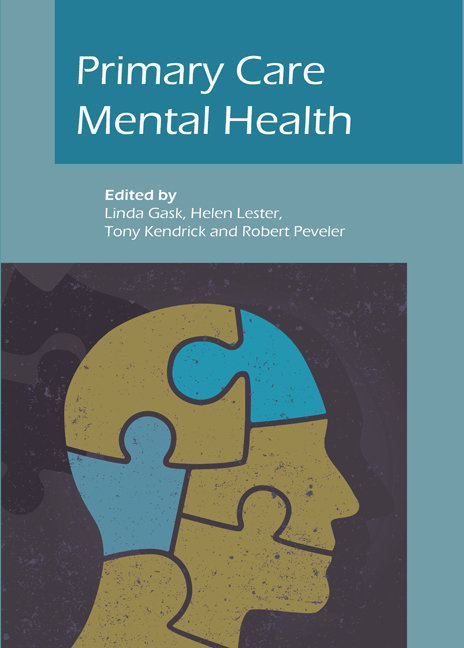Book contents
- Frontmatter
- Contents
- List of figures, tables and boxes
- List of contributors
- Preface
- Part I Conceptual basis and overarching themes
- Part II Clinical issues
- Part III Policy and practice
- 24 Mental health promotion
- 25 Improving the quality of primary care mental health: what does and does not work?
- 26 Psychological treatments
- 27 Collaborative care and stepped care: innovations for common mental disorders
- 28 The role of practice nurses
- Part IV Reflective practice
- Epilogue
26 - Psychological treatments
from Part III - Policy and practice
- Frontmatter
- Contents
- List of figures, tables and boxes
- List of contributors
- Preface
- Part I Conceptual basis and overarching themes
- Part II Clinical issues
- Part III Policy and practice
- 24 Mental health promotion
- 25 Improving the quality of primary care mental health: what does and does not work?
- 26 Psychological treatments
- 27 Collaborative care and stepped care: innovations for common mental disorders
- 28 The role of practice nurses
- Part IV Reflective practice
- Epilogue
Summary
Psychological treatment covers a wide range of different approaches which have an increasing evidence base for their effectiveness. The aim of treatment based on talking therapy is a reduction in emotional distress, and changes in behaviours and patterns of thinking which lead to partial or complete resolution of the impact of mild to severe psychological difficulties. The improvement of emotional, physical and social role function, including a return to work, is a valued outcome.
The wide range of treatments can make choosing one to suit a particular patient and condition a challenge for the primary care practitioner. This challenge can be complicated by access to treatment, in terms of both location and length of waiting list.
The choice runs from self-help interventions, in a range of media and written form, to individual therapy or group-based therapy, for more complex cases with multiple psychological problems. This chapter focuses on the more commonly accessible treatment options within local services, and self-help interventions.
Access to psychological treatment
Psychological treatments are recommended for a range of mental health difficulties (Department of Health, 2001). However, the demand for psychological therapies currently outstrips supply, at least in the UK, resulting in long waiting times for therapy and often precluding access to treatment (Lovell & Richards, 2000). The issue of increasing access to psychological therapies, particularly in primary care, has led to recent UK mental health policy demanding more accessible and effective treatments. In response to this, alternative models of interventions are emerging including Improving Access to Psychological Therapies (IAPT) services.
The National Institute for Health and Clinical Excellence (2004a,b) has proposed the use of a ‘stepped-care approach’ for depression and anxiety. Guidelines for a stepped-care approach (Scogin et al, 2003) are intended to provide evidence-based and best-practice pathways to services. Stepped care is designed to increase the efficiency of service provision, with an overall benefit to patient populations. The basic principle is that patients presenting with a common mental health disorder will ‘step through’ progressive levels of treatment as necessary, with the expectation that many of these patients will recover during the less intensive phases. Such a system seeks to enhance the efficiency and effectiveness of service delivery by providing low-intensity ‘minimal interventions’ to a proportion of patients in the first instance. The stepped-care model for depression is shown in Fig. 26.1 (see also Chapter 8).
- Type
- Chapter
- Information
- Primary Care Mental Health , pp. 378 - 394Publisher: Royal College of PsychiatristsFirst published in: 2017



